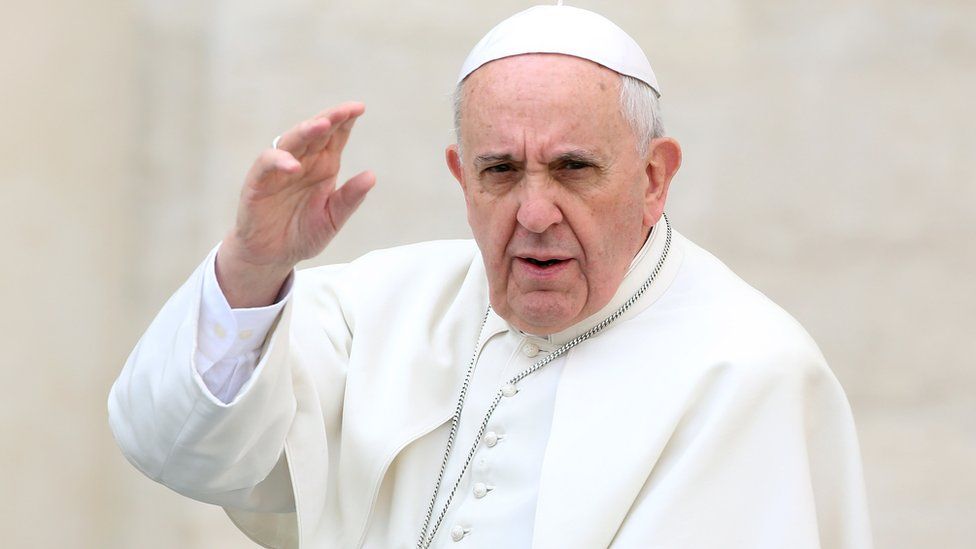Charlie Gard: Pope and Trump offer parents support
- Published

Pope Francis has called for the parents of terminally-ill Charlie Gard to be allowed to "accompany and treat their child until the end".
Chris Gard and Connie Yates had been expecting their 10-month-old's life support to be turned off on Friday.
But Great Ormond Street Hospital said it will continue Charlie's care to allow the family to spend more time with him.
Meanwhile, President Donald Trump tweeted his support on Monday.
He wrote: "If we can help little #CharlieGard, as per our friends in the U.K. and the Pope, we would be delighted to do so."
Allow Twitter content?
This article contains content provided by Twitter. We ask for your permission before anything is loaded, as they may be using cookies and other technologies. You may want to read Twitter’s cookie policy, external and privacy policy, external before accepting. To view this content choose ‘accept and continue’.
The Vatican said the Pope was following the case "with affection and sadness".
A statement released on Sunday said the Pope wished to "expresses his closeness to his [Charlie's] parents".
"For them he prays, hoping that their desire to accompany and care for their own child to the end is not ignored," it said.
Analysis by Nick Triggle, BBC Health correspondent:
Charlie is thought to be one of 16 children in the world to have mitochondrial depletion syndrome.
It is a rare genetic condition which causes progressive muscle weakness and brain damage because he is unable to get energy to his organs.
Doctors have said he now cannot see, hear, move, cry or swallow and has irreversible brain damage. His lungs are only able to keep going because of the treatment he is receiving.
They have argued he should be allowed to die with dignity.
But his parents and supporters have been fighting for him to be given an experimental treatment in the US.
The treatment is not a cure - there isn't one - but it has been suggested it could reduce the effects of the disease.
Although doctors in the US have since said the benefits they have seen have not been in cases as advanced as Charlie's.
The statement came on the same day demonstrators gathered outside Buckingham Palace to protest against the decision to allow Charlie's life-sustaining treatment to be withdrawn.
On 27 June, Charlie's parents lost their final legal appeal to take him to the US for experimental treatment.
His parents also said the hospital had denied their final wish to be able to take their son home to die, and felt "let down" following the lengthy legal battle.
Judges at the European Court of Human Rights concluded that further treatment would "continue to cause Charlie significant harm", in line with advice from specialists at Great Ormond Street.
President Donald Trump said he would be "delighted" to help Charlie after his parents lost their legal battle.
A spokeswoman for the White House said President Trump had not spoken to the family although members of the administration had.
"The president is just trying to be helpful if at all possible," she added.
Doctors have said he cannot see, hear, move, cry or swallow.
Charlie has been receiving specialist treatment at Great Ormond Street Hospital since October 2016.
Charlie's parents raised £1.3m on a crowdfunding site to pay for the experimental treatment in the US.
Ms Yates previously indicated the money would go towards a charity for mitochondrial depletion syndrome if Charlie "did not get his chance".
- Published30 June 2017
- Published12 June 2017
- Published27 June 2017
- Published26 June 2017